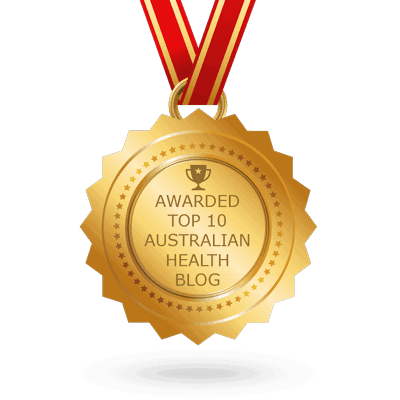While probiotics have emerged as a promising way to support this delicate microbial balance, their use requires careful consideration. From supporting digestive health to boosting immune function, these beneficial bacteria offer potential benefits for many – but may pose risks for others.
Let’s explore who can gain the most from probiotic supplementation and who should exercise caution.
Ideal Candidates for Probiotics
Below are some groups of people who might benefit from adding probiotics to their health regimen.
People Taking Antibiotics
Antibiotics can disrupt the natural balance of gut bacteria (Mayo Clinic 2021), making probiotic supplementation particularly beneficial.
These supplements can help restore beneficial bacteria that antibiotics might eliminate, potentially reducing the risk of antibiotic-associated diarrhoea.
Individuals with Digestive Issues
People suffering from certain digestive conditions may benefit from probiotic supplementation, including those with:
- Irritable Bowel Syndrome (IBS)
- Inflammatory Bowel Disease (IBD)
- Chronic constipation
- Recurring diarrhoea
General Wellness Seekers
Healthy individuals looking to support their immune system and maintain digestive health may benefit from probiotics, though they’re not essential for everyone.
Who Should Avoid Probiotics
While probiotics offer health benefits for many, they can pose serious risks for some individuals. The very nature of these live microorganisms, which are generally beneficial for healthy people, can potentially cause complications in vulnerable populations.
Below are some individuals who should not take probiotics.
Immunocompromised Individuals
People with weakened immune systems should avoid probiotic supplements due to the risk of serious infections. These include:
- Cancer patients undergoing chemotherapy
- HIV/AIDS patients
- Those taking immunosuppressive drugs
Critical Care Patients
Individuals who are critically ill or have recently undergone surgery should avoid probiotics until cleared by their healthcare provider (Caitlin Goodwin, RN, 2023).
People with Specific Medical Conditions
Certain medical conditions may contraindicate probiotic use, such as:
- Severe acute pancreatitis
- Small intestine bacterial overgrowth (SIBO)
- Short bowel syndrome

Special Considerations
Some populations require extra attention and careful evaluation before starting probiotic supplementation.
These groups aren’t excluded from probiotic use. However, they need specialised guidance and monitoring to ensure safe and effective supplementation. Healthcare providers should be actively involved in the decision-making process for these individuals.
Pregnant and Nursing Women
While probiotics are generally considered safe during pregnancy and breastfeeding, women should consult their healthcare provider before starting any supplement regimen.
Children
Parents should always consult with pediatricians before giving probiotics to children, as safety and efficacy can vary by age and condition.
Allergy Sufferers
People with food allergies should carefully check probiotic ingredients, as some products may contain:
- Dairy
- Soy
- Eggs
- Other common allergens
Potential Side Effects
When starting probiotics, some people may experience:
- Temporary bloating
- Gas
- Temporary diarrhoea
- Digestive discomfort
While most side effects of probiotics are mild and temporary, you should monitor your body’s response when beginning supplementation.
Usually, these initial reactions are signs that your digestive system is adapting to the new beneficial bacteria. These symptoms typically resolve within a few days as the body adjusts to the supplement (Cleveland Clinic, 2023).
If symptoms persist beyond two weeks or become severe, it’s advisable to discontinue use and consult with a healthcare provider to determine the best course of action.
Best Practices for Taking Probiotics
The effectiveness of probiotic supplementation largely depends on usage and maintenance.
Like any dietary supplement, proper timing, dosage, and storage can make a difference between achieving optimal benefits and experiencing disappointing results.
Follow these guidelines to help you get the most from your probiotic regimen.
Timing Considerations
- Take on an empty stomach
- Maintain consistent daily timing
- Start with a lower dose and gradually increase
- Allow several hours between probiotic and antibiotic doses
Safety Measures
- Choose reputable manufacturers
- Verify proper storage requirements
- Monitor for adverse reactions
- Discontinue use if problems persist
Alternative Approaches
For those who shouldn’t take supplements, consider these alternatives:
- Probiotic-rich foods like yogurt, kefir, and fermented vegetables
- Prebiotic foods to support existing gut bacteria
- Focus on a balanced, fibre-rich diet
Find out which probiotic source is better, food or supplement.
When to Consult a Healthcare Provider
Always seek medical advice before starting probiotics if you:
- have a chronic medical condition
- are taking multiple medications
- experience unusual symptoms
- are preparing for surgery
- have a compromised immune system
The decision to take probiotics should be based on individual health status, medical conditions, and healthcare provider recommendations.
- Who Should (and Shouldn’t) Take Probiotics? - 16 November 2024
- How to Choose the Right Probiotic - 16 November 2024
- Prebiotics vs Probiotics: The Dynamic Duo of Gut Health - 16 November 2024
